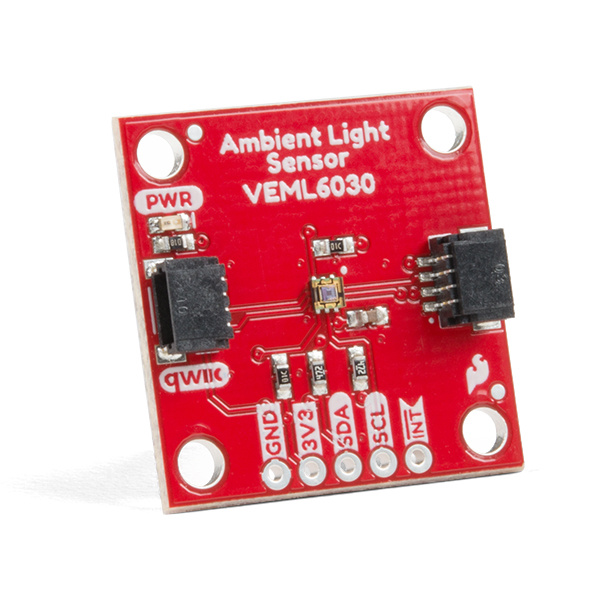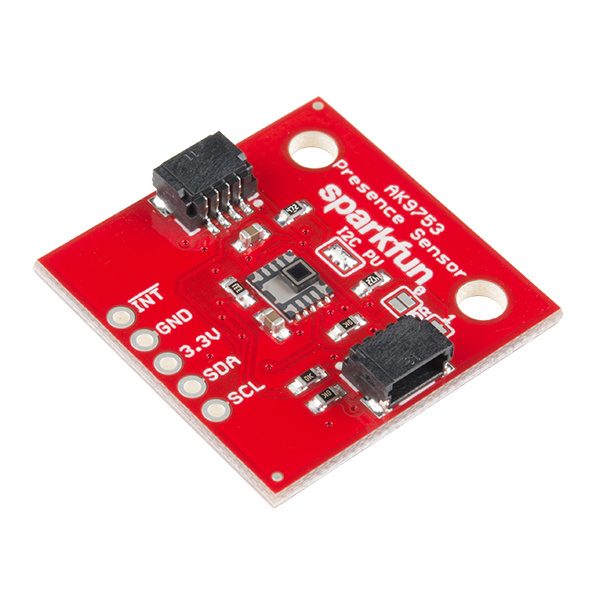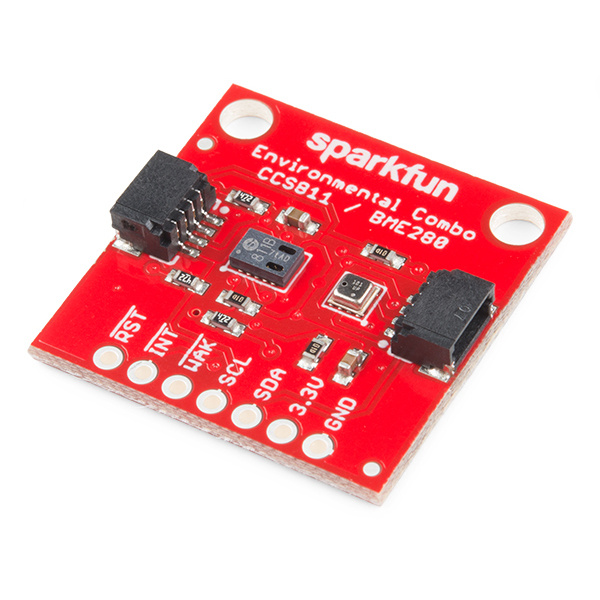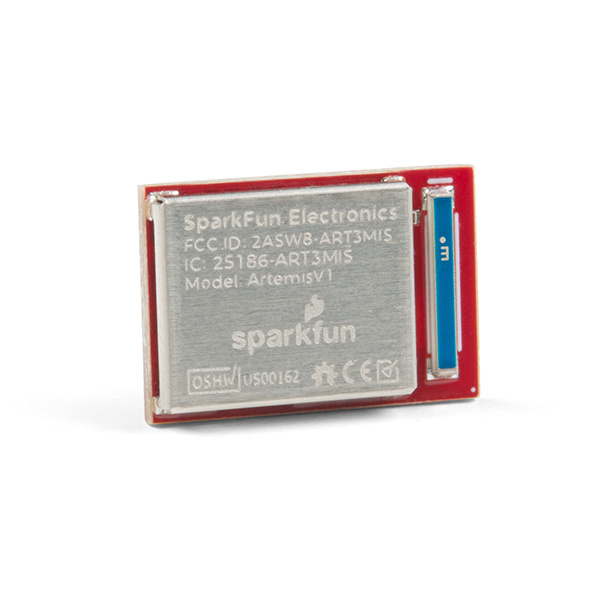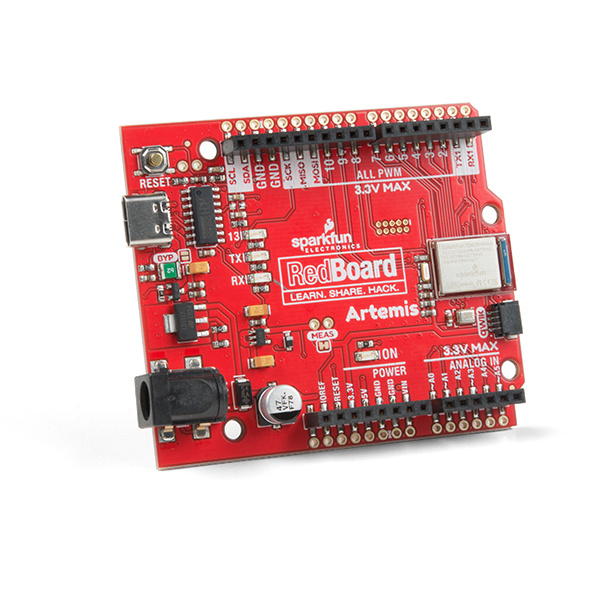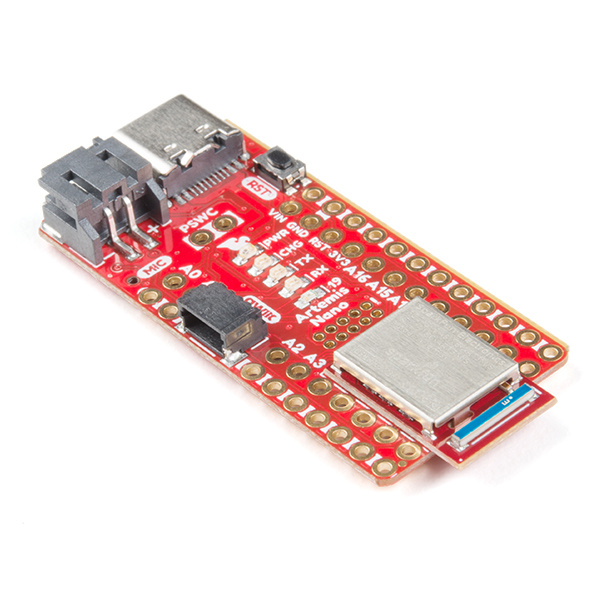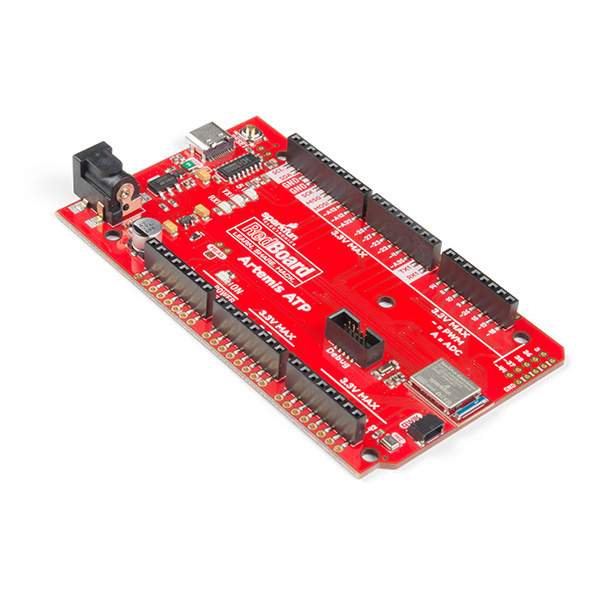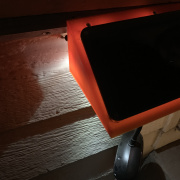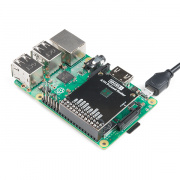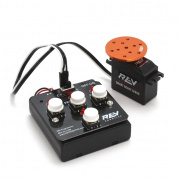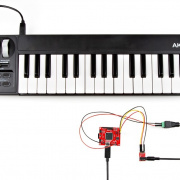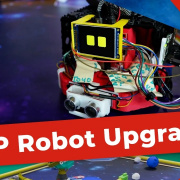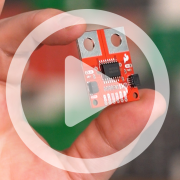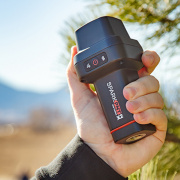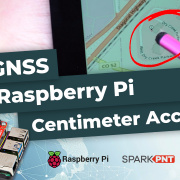Friday Product Post: Shoot for the Moon with Artemis!
We released the FCC Certified Artemis this Wednesday, and now we want to talk to you about a special sale we are having to celebrate!
Hello and welcome, everyone! It's Friday, once again, and we have a few new products to talk about that were released this last Wednesday as well as the announcement of TWO WEEKS OF FREE! So in case you missed it, we released our official, FCC Certified Artemis Module and accompanying RedBoards on the 28th to a fair amount of fanfare but we recognize that a lot of you don't expect product releases from us that early in the week, so we wanted to talk about each of them individually!
Before we get to Artemis, though, we need to talk about our Two Weeks of Free Event that starts today! Are you ready to get your hands on some free gear? Better get ready, because we sense some good deals that might move Qwiic-ly. (See what we did there?) This year, we’re going to have two weeks of free gear. Both weeks will feature different items and you get to choose from among them. Think of it like a Choose Your Own Adventure, but with boards and sensors.
Week One: Purchase either the Artemis RedBoard (yes, the new one) or the Qwiic RedBoard and pick one of three sensors (listed below) to get for free! This week of free will end next Thursday, September 5 at 11:59pm MT. You can also find out more at our Two Weeks of Free Info Page!
Some reminders to keep it fun for everyone before we get to the good stuff:
- It’s Labor Day weekend and we’ll be closed on Monday. Orders will ship when we return.
- If you don’t have some, be sure to throw some Qwiic cables in your cart to get your new project up and running.
- Only one promo code can be used per customer, per week.
- Must have your RedBoard and Qwiic board in your cart before adding promo code.
- Orders utilizing promo codes cannot be combined with other orders for shipping.
- Offer is good while supplies last. No rainchecks. No backorders.
- If items are returned in an order using a promo code resulting in the order total being below the threshold for use of the promo code, the full price of items in the order will be applied.
- Offer for customer roles only
Alright! Let's look at Artemis!
The fully FCC/IC/CE certified Artemis Module from SparkFun is a Cortex-M4F with BLE 5.0 running up to 96MHz and with as low power as 6uA per MHz (less than 5mW). This is the world's first module to bridge the market between hobbyists and consumer products. We've packaged all the power of a modern microcontroller into a module that is both extremely easy to use but is mass-market ready.
Think of the RedBoard Artemis as just another Arduino... That has BLE. And one megabyte of flash. And runs at less than 1mA. Oh, and it can run TensorFlow models. Ya, that too. The RedBoard Artemis takes the incredibly powerful Artemis module from SparkFun and wraps it up in an easy to use and familiar Uno footprint. We've written an Arduino core from scratch to make programming the Artemis as familiar as Serial.begin(9600). Time-to-first-blink is less than five minutes.
We like to joke the Artemis Nano is a party on the front and business on the back. And that's by design! All the important LEDs, connectors, labels, and buttons are presented on the front for the best user experience with all the supporting circuitry on the rear of the board. The RedBoard Artemis Nano is a minimal but extremely handy implementation of the Artemis module. A light weight, 0.8mm thick PCB, with on board LiPo-battery charging and a Qwiic connector, this board is easy to implement into very small projects. A dual row of ground connections make it easy to add lots of buttons, LEDs, and anything that requires its own GND connection. At the same time, the board is breadboard compatible if you solder the inner rows of pins.
The RedBoard Artemis ATP is affectionately called 'All the Pins!' at SparkFun. The Artemis module has 48 GPIO and this board breaks out absolutely every one of them in a familiar Mega like form factor. What's with the silkscreen labels? They're all over the place. We decided to label the pins as they are assigned on the Apollo3 IC itself. This makes finding the pin with the function you desire a lot easier. Have a look at the full pin map from the Apollo3 datasheet. If you really need to test out the 4-bit SPI functionality of the Artemis you're going to need to access pins 4, 22, 23, and 26. Need to try out the differential ADC port 1? Pins 14 and 15. The RedBoard Artemis ATP will allow you to flex the impressive capabilities of the Artemis module.
That's it for this week but we are planning even more Artemis boards to release in the next few weeks, so make sure to check back! As always, we can't wait to see what you make! Shoot us a tweet @sparkfun, or let us know on Instagram or Facebook. We’d love to see what projects you’ve made!
